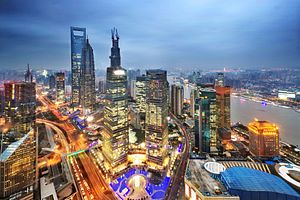It is widely believed that although China’s hard power has increased tremendously in the last three decades, China’s soft power is still very limited. To some degree this is true. Very few big ideas come from Chinese thinkers; even the term ‘soft power’ itself is an American invention. Chinese leaders are well aware of this situation, and this is partly why the Chinese government in recent years has tried to promote China’s soft power through institutions like the Confucius Institutes and so on. The results, so far, have been mixed, as foreigners in general are still skeptical about China’s own values and ideas. Part of the problem is that foreigners tend to view governmental efforts as pure propaganda.
Realizing this situation, the Chinese government has, since the third plenum of the 18th Party’s Congress in 2013, called for a new approach to soft power, one that emphasizes the unique role of independent think tanks in generating new ideas and enhancing China’s soft power. Thus, the Dean of Institute for National Condition Studies at Tsinghua University, Professor Hu Angang, argued that China’s think tanks could help showcase Chinese thought, Chinese positions, and Chinese voices at the international stage. Ultimately, China’s think tanks can make big contributions to the realization of the ‘Chinese Dream.’ It is safe to say that now it is springtime for China’s think tanks to influence government policies and enhance China’s soft power.
In particular, the Chinese government has emphasized on a new type of think tank, one that is different from traditional think tanks that largely depend on government for funding and personnel. Trying to learn from U.S. experiences, this new type of think tank is established by private individuals from within Chinese society, thus giving them full autonomy in voicing their opinions that sometimes might clash with the government’s voice. Ultimately this is a good thing because China is much too large and complex, even for the government to understand it very well.
Very quickly, a generation of these new types of think tanks burst into existence and now play an active role in creating new ideas of governance and international relations. Three think tanks stand out due to their activities and influence: the Chunqiu Research Institute, the Center for China and Globalization Studies, and the Chongyang Institute of Financial Studies at Renmin University.
The Chunqiu Research Institute was established in 2014 and is now led by well-known public intellectual Eric Li, who has become famously in recent years for his TED talk and critical comments on Western democracy. The Chunqiu Institute has also created a very popular website named “Observers” that leans toward China’s leftist forces, though some liberal voices are also active on the website. So the website plays the role of integrating voices from the right and the left in China, hoping to provide useful ideas of governance to influence China’s development.
In contrast, there is the right-leaning think tank, the Center for China and Globalization Studies, led by another well-known public intellectual Wang Huiyao. Like Li, Wang also spent many years in overseas, acquiring an MBA and then working for a multinational company before finally returning to China to start a think tank. One major research task of Wang’s think tank is about the so called ‘sea turtles’: people coming back to China after many years of study or work in foreign countries. In early 2015, the Center for China and Globalization Studies was named one of the top three private think tanks in China.
Finally, there is the Chongyang Institute for Financial Studies at Renmin University. This one was established in 2013, with a generous donation of 200 million Renminbi (about $33 million) from a private business man named Qiu Guogeng. Although the Institute’s main focus seems to be on financial research, its activities and projects are actually much wider in reality, including global governance, security studies, and so on. The leader of the Chongyang Institute is Wang Wen, another public intellectual who is famous for his previous commentaries in the nationalistic Global Times. Like the CCGS, Chongyang has quickly become a top three research think tanks in China.
To conclude, it is important for outsiders to pay attention to this new generation of think tanks in China. They are largely independent and very much represent different groups of interests in Chinese society. This is the strongest evidence that China is indeed moving toward a pluralistic society. Undoubtedly, this trend will only continue and strengthen in the future. If outsiders want to shape China’s future social and political developments, it would be wise to hear such voices.

































